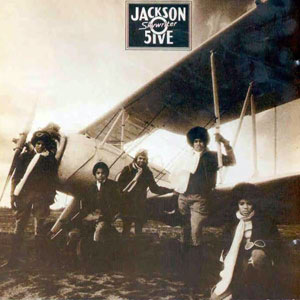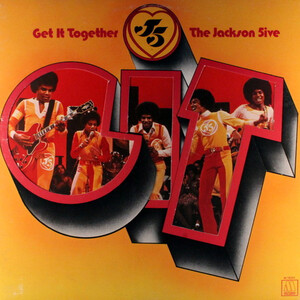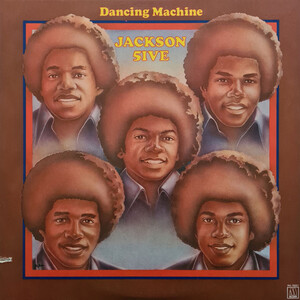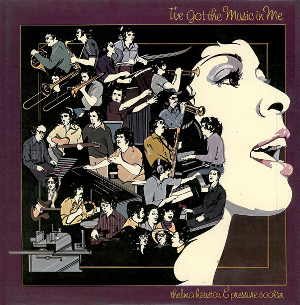
Thelma Houston is an American singer. Beginning her recording career in the late 1960s, Houston scored a number-one hit record in 1977 with her recording of "Don't Leave Me This Way", which won the Grammy for Best Female R&B Vocal Performance.

"Me and Bobby McGee" is a song written by American singer-songwriter Kris Kristofferson and originally performed by Roger Miller. Fred Foster shares the writing credit, as Kristofferson wrote the song based on a suggestion from Foster. A posthumously released version by Janis Joplin topped the U.S. singles chart in 1971, making the song the second posthumously released No. 1 single in U.S. chart history after "(Sittin' On) The Dock of the Bay" by Otis Redding. Gordon Lightfoot released a version that reached number 1 on the Canadian country charts in 1970. Jerry Lee Lewis released a version that was number 1 on the country charts in December 1971/January 1972 as the "B" side of "Would You Take Another Chance On Me." Billboard ranked Joplin's version as the No. 11 song for 1971.

Skywriter is the seventh studio album by The Jackson 5, released by Motown on March 29, 1973.

G.I.T.: Get It Together is the eighth studio album by the Jackson 5, released on September 12, 1973 for the Motown label. The album featured the minor hit "Get It Together" and the original version of the subsequent major hit "Dancing Machine", which was later re-released in edited form on a tie-in album of the same name.

Dancing Machine is the ninth studio album released by the Motown quintet the Jackson 5, on September 5, 1974. The album's title track was a No. 2 pop hit and a No. 1 R&B hit in the United States. The group released two additional singles from the album: the funky "Whatever You Got, I Want" and the group's last US Top 20 hit for Motown, "I Am Love".

Last Time I Saw Him is the fifth studio album by American singer Diana Ross, released on December 6, 1973 by Motown Records. It reached #52 in the USA and sold over 200,000 copies. It also helped Ross win the 1974 American Music Award for Favorite R&B Female.

Dynamite is the third and last collaborative album between labelmates The Supremes and The Four Tops, released on the Motown label in 1971. The album was a collection of material recorded for the Magnificent Seven albums, but which had not been included on either of those two albums. The cover artwork was an illustration based on photo sessions from the Return of the Magnificent Seven album artwork. In the US, Dynamite was as commercially unsuccessful as The Magnificent 7 (1970) and The Return of the Magnificent Seven (1971), peaking at the lower hundreds of the Billboard Top 200. The album fared much better on the Billboard R&B charts, peaking at 21.

The Devil in Me is the sixth album by Thelma Houston released in 1977. While this album did not duplicate the commercial success of the Any Way You Like It album, it became a modest commercial success, peaking at No. 64 in the US album chart/No. 29 R&B. The lead single was the R&B and Club/Dance chart hit, "I'm Here Again". "I Can't Go On Living Without Your Love" was issued as a double-sided 12" single back-to-back with Diana Ross' "Your Love Is So Good to Me".

Two to One is Thelma Houston's seventh studio album released on Motown Records in June 1978. It was her second duets album with Jerry Butler, composed of only two left-over duets from their Thelma & Jerry album from the previous year, "If It Would Never End" and "You Gave Me Love", padded out with previously unreleased solo recordings by each singer, Houston's "Find a Way", "I'm Not Strong Enough " and "Don't Pity Me", while Butler's tracks included "We Owe It to Ourselves", "Never Gonna Get Enough" and "Chicago Send Her Home".

Any Way You Like It is the fourth album by Thelma Houston, released late October 1976 on Tamla Records. The album features energetic disco songs with fierce vocal performances by Houston on side 1, while side 2 focuses on ballads. It includes the major hit single, "Don't Leave Me This Way", Houston's remake of the Harold Melvin & the Blue Notes song, zooming to No. 1 in the US charts. In the US, "If It's the Last Thing I Do", a track originally recorded in 1972, was chosen for the second single release on MoWest, while Europe had an edited version of the Stevie Wonder cover, "Don't Know Why I Love You", produced and arranged by Michael Lovesmith.

Artie Wayne was an American record producer, music publisher, songwriter and singer.

Reachin' All Around is the twelfth album by Thelma Houston released in 1982. The album consists of previously unreleased material recorded while at Motown Records. While the album did not become a major seller, it is well liked by her fans. This album was released on CD in 2018 by Soulmusic Records, in a compilation that also includes The Devil in Me, Ready to Roll and Ride to the Rainbow.

I've Got the Music in Me is the third album by Thelma Houston featuring Pressure Cooker.
John Joseph Kelson Jr., known professionally as Jackie Kelso, was an American jazz saxophonist, flautist, and clarinetist.

Renaissance is a 1973 album by R&B group The Miracles on Motown Records' Tamla label. It was the first album by the group not to feature original lead singer Smokey Robinson on lead vocals, instead featuring him as executive producer. Robinson was replaced by lead singer Billy Griffin.

Together is the tenth studio album by Anne Murray, released in November 1975. The album reached number 15 on the U.S. country album charts and #142 on the pop albums charts. It was one of Murray's few albums during this time period that did not chart in Canada. Two singles were released from the album: "The Call", which reached #19 and #6 on the U.S. country and A/C singles charts respectively, and "Sunday Sunrise", which reached #49 on the country singles charts, and #13 on the A/C singles charts. "The Call" was a rerecording of a song, which Murray had originally included on her Honey, Wheat and Laughter album in 1970. This album also has the distinction of having the great Dusty Springfield doing backup vocals.
"Amoureuse" is a French language composition by Véronique Sanson introduced on her 1972 album of the same name. Rendered in English the song became a hit single for Kiki Dee and – as "Emotion" – for Helen Reddy.

Patti Dahlstrom is a singer, songwriter, and teacher. She recorded four albums in the 1970s and co-wrote the Helen Reddy hit "Emotion".

Joyful Jukebox Music is a compilation album by American music group the Jackson 5, released by the Motown label on October 26, 1976, after the band had left the label. This is the third compilation released by the group, after Greatest Hits (1971) and Anthology (1976), yet the first to be entirely composed of previously unreleased material, recorded between 1972 and 1975. The compilation was released less than two weeks before the group's debut on their new label Epic Records.

Boogie is a compilation album of both previously released and unreleased tracks by American band The Jackson 5. It was released by the Motown label on January 16, 1979, after the release of the Jacksons studio album Destiny (1978) a month earlier. Boogie is considered the rarest of all Jackson 5/Jacksons releases, as not many albums were pressed and fewer were sold at the time.

















